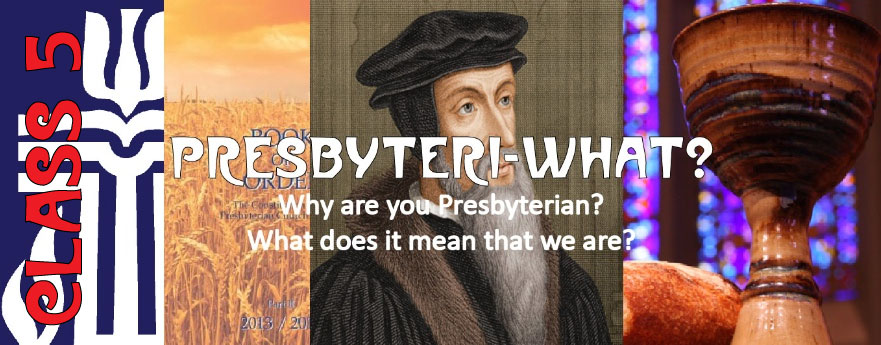Class 4 :: May 1, 2016 :: “Worship”
WORSHIP. It’s what we call our work together on Sunday morning. And it’s also what we can call every moment of every day, no matter what we do or where we are. It’s our response to God and God’s initial action.
The word is Germanic in origin, meaning “to ascribe worth,” coming from the root word in old English the word of “woerth” meaning “worth”. In Hebrew the word Kabad כָּבַד “to honor” (also related to worship) literally means “to give weight to.” Etymologically then worship is all about give space, weight, honor and worth to the One that makes all things possible.
Our Presbyterian constitution, the Book of Order, is divided into three parts: The Form of Government, the Directory of Worship and the Rules of Discipline. The second, which begins each notation with a W- is all about worship what we understand it to be as Christians of the Presbyterian flavor. It’s a vision issued from our history, theology, church practice and Biblical understanding.
It begins with the following affirmation:
“Christian worship joyfully ascribes all praise and honor, glory and power to the triune God. In worship the people of God acknowledge God present in the world and in their lives. As they
respond to God’s claim and redemptive action in Jesus Christ, believers are transformed and renewed. In worship the faithful offer themselves to God and are equipped for God’s service in the
world.” W-1.1000.
Flowing through discussions about when it’s appropriate: “any time,
for all time has been hallowed by God.” “From earliest times, the church has gathered on the Lord’s Day for the proclamation and exposition of the Word and the celebration of the Sacraments.” And so Sunday is a special day of regular gathering of the whole community for worship. We also see that “in Israel’s worship, daily hours were set aside for sacrifices of praise and thanksgiving.” So “through the ages, the Church has maintained special hours for daily prayer, historically known
as the daily office.”
Appropriate Actions in this weekly service of the gathered community include: the reading and proclamation of Scripture, prayer, music, Baptism, the Lord’s Supper, the gathering and receiving of tithes and offerings of the people and Special Times [Times for gathering, greeting, and calling to worship; for sharing common concerns; and for blessing and sending forth into action/mission.
Any and all members of the Church are called and able to lead and participate in worship, as we together, as the Church – the called people of God, are equally Christ’s royal priesthood in all our unity and diversity.
Worship should be ordered, so that each person can participate. It is rooted in the Old and New Testaments, and reflects the tradition of the universal Church and our Reformed heritage. The order that follows is presented in terms of five major actions centered in the Word of God:
1. gathering around the Word;
2. proclaiming the Word;
3. responding to the Word;
4. the sealing of the Word;
5. bearing and following the Word into the world.
We also affirm that the language and symbols used in worship should be rooted in scripture, as well as inclusive so that all may participate.
ADDITIONAL READING FOR A DEEPER GRASP OF PRESBYTERIAN POLITY:
- Check out the Directory for Worship in our Book of Order which defines worship, talks about who should help lead it and how we structure it. Look for it (it’s identified with W-….). Chapter 1 to 3 (W1, W2, W3) offer a good, concise introductory overview. BOOK OF ORDER LINK. pps. 109-152 of the PDF, or pps. 75-118 (printed on the pages).
QUESTIONS FOR PONDERING:
• What surprises you about the way in which we “do” worship?
• How do you see those elements in our weekly gatherings?
• What questions does this conversation stir up in you?

Pingback: Presbyteri-What? Class 6: Putting it all together – Monte McClain